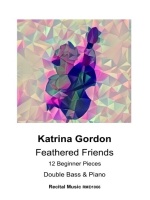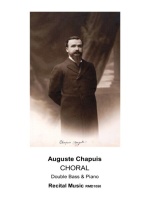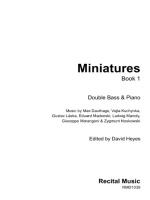Your basket is currently empty!
Classical Vienna

Description
Classical Vienna brings together music by Beethoven, Mozart and Schubert, arranged for the intermediate Double Bass, Quartet by David Heyes.
The elegance of Schubert’…s Viennese Dances contrasts the lyricism and passion of Mozart’s Ave Verum Corpus, alongside ethereal and evocative funeral music by Beethoven. Three 4- part canons, arranged in a number of keys, complete a collection which offers music for the concert hall, as sight-reading and ensemble study, or simply to enjoy playing with friends.
Franz Schubert (1797-1828) – Viennese Dances
Schubert was an amazingly prolific composer during his short life and wrote more than 600 songs, effectively establishing the German lied as a new art form in the 19th-century. His chamber works, symphonies and piano music are still at the heart of the, Repertoire today and his wonderful gift for melody and great expression has helped to keep his music alive for almost 200 years.
Schubert composed more than 400 works for piano and these seven short dances evoke the style and elegance of early 19th-century Vienna. The shorter dances can be repeated to increase their duration and the seven dances can be performed as a dance suite or individually.
Wolfgang Amadeus Mozart (1756-1791) – Ave Verum Corpus (K.618)
Ave Verum Corpus is a welcome addition to the Double Bass, Quartet, Repertoire, amply demonstrating the lyrical and sonorous qualities of the bass quartet. The sustained chordal writing is ideally suited to the quartet medium and it can also be successfully performed by massed basses. Ave Verum Corpus was composed in 1791, during the composition of Mozart’s opera The Magic Flute, and the manuscript is dated 17 June 1791. It was written for Anton Stoll, the church musician of St. Stephan in Baden bei Wien, and was composed while visiting his wife Constanze, who was staying at the spa in the town in Lower Austria.
Ludwig van Beethoven (1770-1827) – Three Equali
Three Equali for four trombones was composed for All Souls’ Day during a visit to Beethoven’s brother in Linz in autumn 1812. They are solemn and noble, relying more on a strong harmonic feel than on melodic interest, and transcribe successfully for Double Bass, Quartet. Two of the pieces were later arranged by Seyfried for voices and were performed at Beethoven’s funeral in 1827.
W.A. Mozart (1756-1791) – Grechtelt’s enk is originally for four equal voices and was composed in 1788. The music is simple and attractive with the addition of dynamic and articulation changes are able to create contrast and interest.
Ludwig van Beethoven (1770-1827) – Gedenket heute an Baden! (Think of Baden today!) is originally for four equal voices and was composed in 1822. It uses a limited number of notes to create music which is instantly appealing and accessible.
W.A. Mozart (1756-1791) – O du eselhafter Peierl (O you donkey Peierl) is originally for four equal voices and was composed sometime between 1785-87. It is a comic canon and is a gesture of mocking directed at Mozart’s friend, the baritone Johann Nepomuk Peyerl (1761-1800). The comic text is lost in this instrumental version but the music
R.R.P £10
Our Price £8.5




